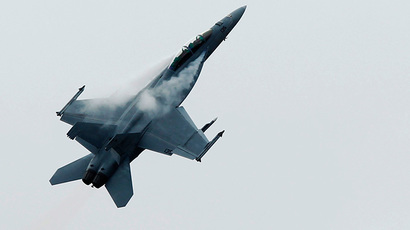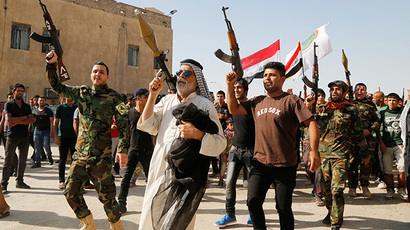Desperate times: Kerry says US ready to turn to Iran, drone strikes, to fight ISIS
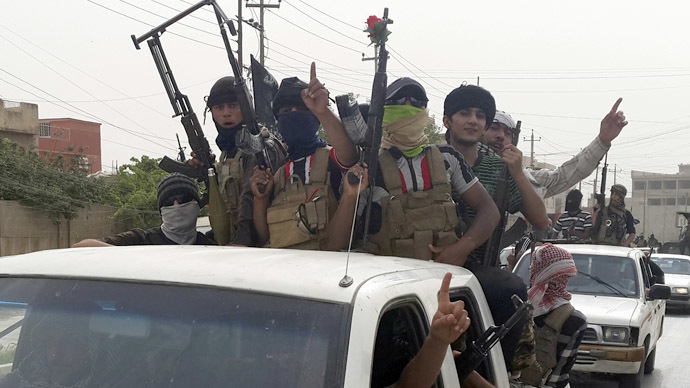
US Secretary of State John Kerry says that Washington is ready to use radical measures to halt the ISIS offensive in Iraq – including enlisting Iran’s help and launching air strikes.
"We're open to discussions if there is something constructive that can be contributed by Iran, if Iran is prepared to do something that is going to respect the integrity and sovereignty of Iraq," the diplomat told Yahoo News on Monday when questioned about joining forces with Iran, which enjoys religious ties with the embattled government in Baghdad.
But Kerry warned that the US should “see what Iran might or might not be willing to do before we start making any pronouncements."
Later, the State Department and the Pentagon clarified that any
joint action would be political and not military.
"There is absolutely no intention and no plan to coordinate
military activity between the United States and Iran...there are
no plans to have consultations with Iran about military
activities in Iraq,” said Pentagon spokesman Rear Admiral
John Kirby.
The Al-Qaeda offshoot ISIS (or ISIL) – the Islamic State of Iraq
and Levant – has pushed from its strongholds on the Syrian border
and taken the major urban centers of Mosul and Tikrit over the
past week. Its militias are currently stationed on the outskirts
of Baghdad, where the government is staging a counter-offensive.
Over the weekend, it claimed to have executed 1,700 loyalist
officers.
“This is a challenge to the stability of the region. It is
obviously an existential challenge to Iraq itself. This is a
terrorist group,” Kerry said of ISIS, a Sunni organization
which has exploited the sectarian tensions partially incited by
the hardline Shia policies of the current government.
The diplomat heavily criticized Prime Minister Nouri Maliki, but
said the US will not be “issuing instructions or orders”
for him to resign or share power. He did, however, call on the
“Iraqi people to form a government that represents all of the
interests of Iraq — not one sectarian group over another."
Nonetheless, Kerry reiterated previous statements saying that the
US would consider using air strikes – whether manned or unmanned
– to prevent Baghdad from being taken by extremists.
"They [drones] are not the whole answer, but they may well be one
of the options that are important," said Kerry. "I wouldn't rule
out anything that would be constructive."
“When you have people murdering, assassinating in these mass massacres, you have to stop that and you do what you need to do if you need to try to stop it from the air or otherwise," Kerry added
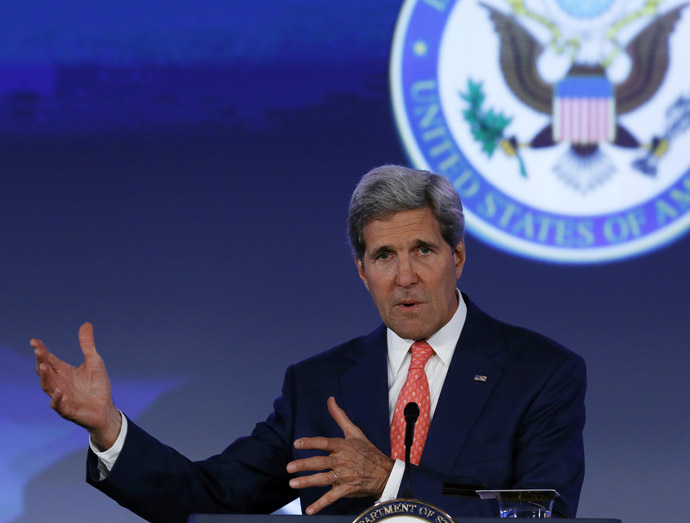
The diplomat said that President Barack Obama is conducting
"a very thorough vetting of every option that is
available."
Obama previously said the US would avoid a direct military
intervention in the country it invaded in 2003 and left only
three years ago.
Kerry echoed concerns by other US politicians that the growing
might of ISIS – which plundered US$425 million from a government
vault in Mosul last week and enjoys generous funding from
Wahhabis in the Arabian peninsula – is endangering American
national security.
ISIS “clearly are focused not just there, but they’re focused
on trying to do harm to Europe, to America and other people, and
that’s why we believe it is so important for us to be
engaged."
Kerry said the organization counted fighters from the US,
Australia, Britain, Canada, France, Germany, and the Netherlands
in its ranks – and that those could later return to their home
countries to stage terrorist acts.
Iran + US = a far-fetched plan?
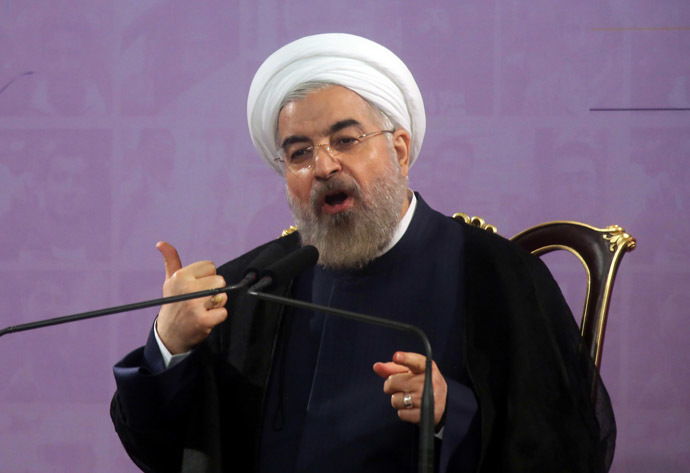
While the idea that Washington and Tehran may work alongside each
other is a testament to the thawing of relations between recent
adversaries, it currently seems unlikely that the initiative will
bear fruit.
The two countries share a genuine strategic interest in keeping
the Maliki government afloat (though their motives for doing so
are fundamentally different) and Western media outlets have
reported that the Islamic Republic has already dispatched elite
Revolutionary Guards troops to buffer the Iraqi government,
citing Iraqi and American officials.
But Iran has denied any military involvement in its neighbor’s
conflict, as the head of the country’s Supreme National Security
Council, Ali Shamkhani, publicly rebuffed the US offer, calling
it “unrealistic.”
The two countries are also locked in tense late-stage
negotiations over Iran’s nuclear program and potential sanctions
relief. On Monday, the State Department released a statement
saying that while it will discuss Iraq with Iranian officials at
upcoming talks in Vienna, it is reluctant to link the two issues
together.













